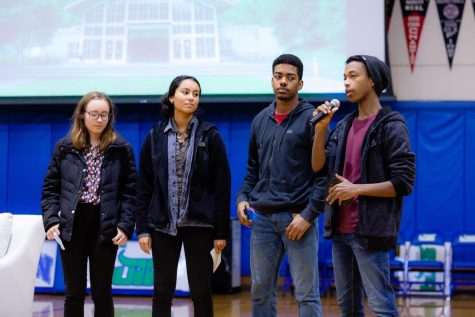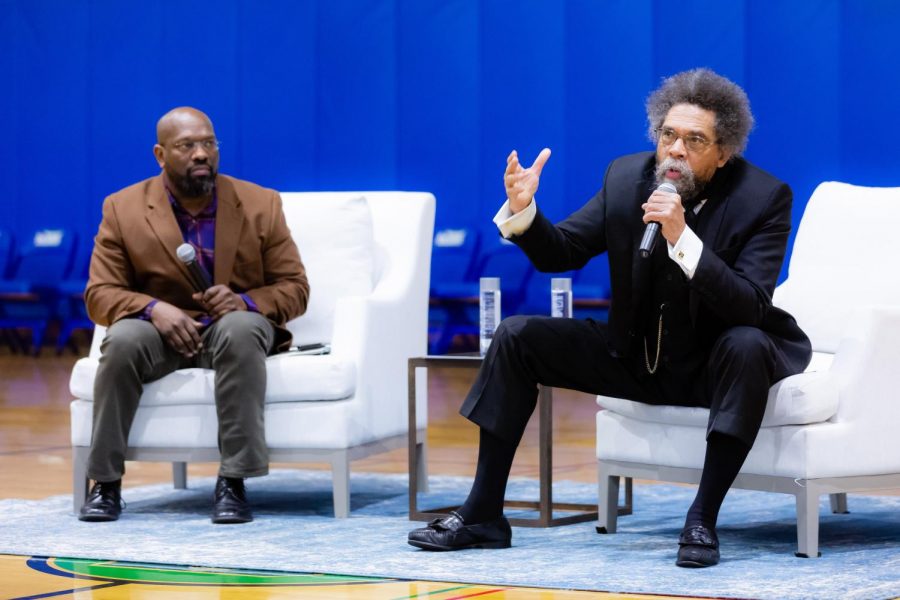Dr. Cornel West and Mr. Bakari Kitwana speak to the Branson community for a Human Development Day
April 1, 2020
The highlight of Branson’s Human Development Day on Jan. 21 was hearing from Cornel West and Bakari Kitwana, which provided all students, faculty and audience with a unique and eye-opening perspective.
They shared their perspectives and lives’ works with the community, with the theme for this particular Human Development Day being Branson as a Beloved Community.
West, famed philosopher, activist, sociopolitical intellectual and author, has been influenced by Martin Luther King, Jr. and Malcom X and introduced an interesting perspective into how we as a society perceive race, gender, and class and his concept of “racial conditionedness”.
He was joined by Kitwana, also a sociopolitical activist and analyst, as well as a journalist. Together, they shared their insights into how we view people through social identifiers such as skin color, age, ability, and gender.
“My goal was to present DEI as something that can be popular and exciting, something that can be talked more about,” said JuanCarlos Arauz, director of diversity, equity, and inclusion. “It’s heavy, hard stuff that’s real like racism, classism, and sexism. Having Dr. West and Mr. Kitwana here is an introduction, that’s where we have to go first before we can talk about the heavy stuff.”
Arauz said he hopes in the future that the Branson community will continue to learn and practice DEI with more inspiring speakers later this year.

Organized by the leaders of Students Tackling Racial Issues Via Education, the primary message of West and Kitwana was racial conditionedness and identity as influenced by modern society.
Helena Bates, a senior leader of STRIVE, introduced Mr. Kitwana by saying, “In the span of just 40 to 50 years, hip-hop has grown into this global phenomenon which has affected all of us whether we know or not … Lying within Mr. Kitwana’s collection of thought provoking books are the keys to making sense of the current political state of our divided nation, and the responsibilities that our own generation has as we continue to tackle pervasive issues which plague our country and our world.”
West and Kitwana talked in-depth about success and how it has been redefined socially and culturally with new generations. “Success” used to be getting a good job and making money; however, now our society has begun to realize that there is so much more to life and happiness than financial stability and a good reputation.




